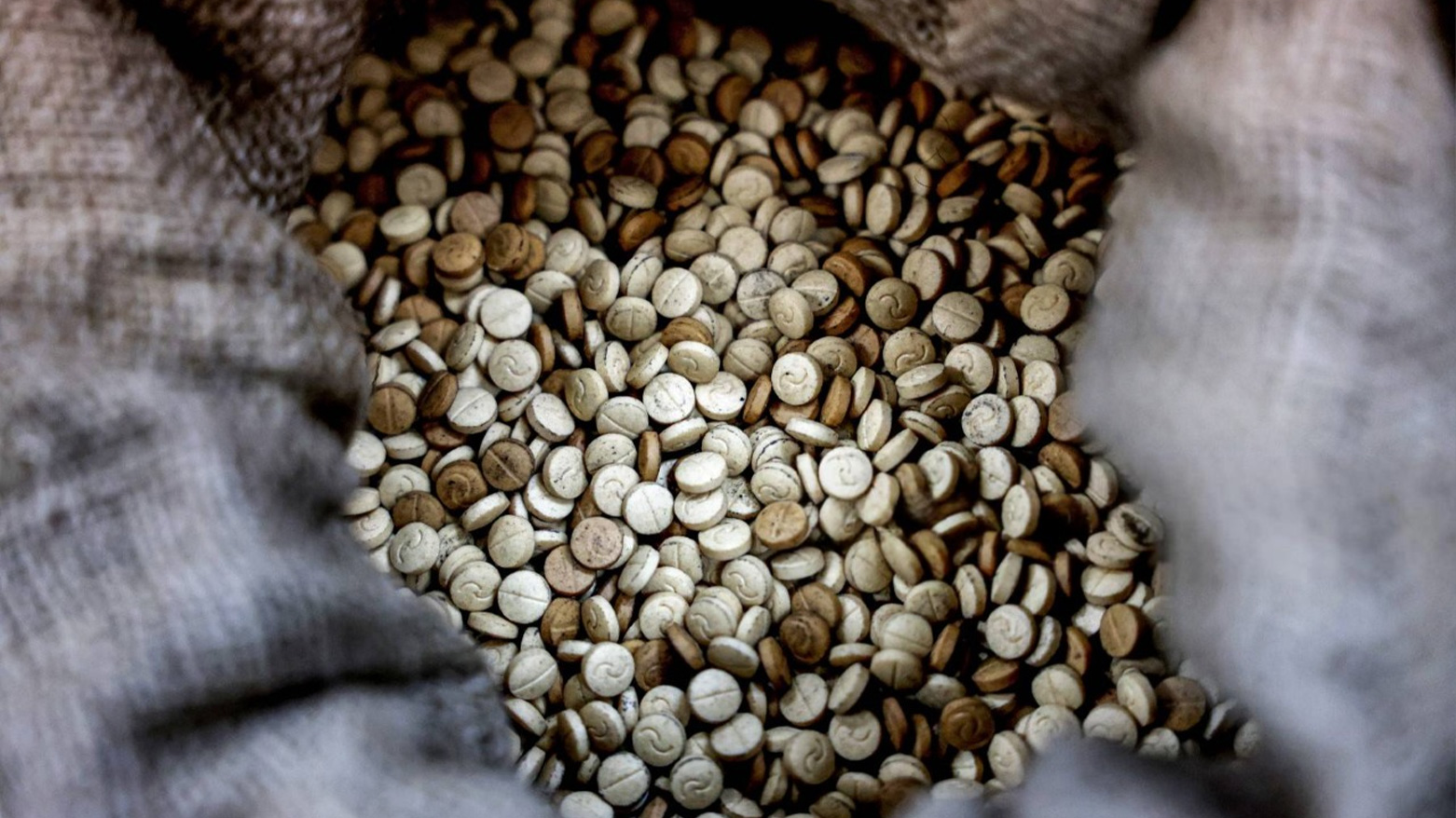Captagon on the Euphrates: Iraq Blocks Smuggling Route
According to a statement issued by the Iraqi Ministry of Interior, security forces intercepted the smuggling operation in the Baghuz border area, a known flashpoint along the porous frontier between Iraq and Syria.

By Kamaran Aziz
ERBIL (Kurdistan24) — Iraqi border security forces have thwarted a significant drug smuggling attempt, seizing 15 kilograms of illicit narcotics intended for transport from Syria into Iraq via the Euphrates River, authorities announced on Sunday.
According to a statement issued by the Iraqi Ministry of Interior, security forces intercepted the smuggling operation in the Baghuz border area, a known flashpoint along the porous frontier between Iraq and Syria. The seizure is part of intensified efforts by Iraqi authorities to combat the growing threat posed by international drug trafficking networks that exploit regional instability.
"Within the framework of ongoing efforts to protect Iraq's borders and to confront drug traffickers and international criminal organizations, our forces have successfully seized a substantial quantity of Captagon drugs in the Baghuz border area between Iraq and Syria," the Ministry's statement read.
The operation uncovered 11 kilograms of Captagon, an amphetamine-type stimulant widely abused across the Middle East, alongside an additional four kilograms of hashish. The narcotics were hidden inside sealed plastic containers designed to be discreetly transported across the Euphrates River, highlighting the smugglers' growing sophistication and adaptability.
The latest interdiction underscores a broader and increasingly urgent national crisis. As Kurdistan24 previously reported, Iraq has transitioned from a drug transit corridor to an emerging consumer hub. In the first quarter of 2025 alone, Iraqi authorities arrested more than 3,000 individuals in connection with drug trafficking and seized over two tons of narcotic substances.
Captagon, often dubbed the "poor man's cocaine," has become a major illicit commodity, fueling addiction particularly among Iraq's vulnerable youth. Its proliferation is linked not only to organized crime but also to regional militant groups, adding a dangerous security dimension to Iraq's drug problem.
Border areas with Syria have become major conduits for smuggling, with traffickers exploiting poorly monitored desert frontiers. In a similar operation earlier this year, Iraqi forces intercepted 30,000 Captagon pills hidden inside reed-camouflaged containers along the Syria-Iraq border, demonstrating the escalating sophistication of smuggling tactics.
Experts warn that without a unified national strategy and enhanced regional cooperation, Iraq risks further entrenching itself as both a major transit route and a consumer market. Iraqi security officials have acknowledged the fragmented nature of the country's anti-narcotics response, plagued by corruption, weak enforcement, and underdeveloped rehabilitation programs.
In a landmark operation earlier this year, Iraqi forces, in coordination with Saudi intelligence, seized 1.1 tons of Captagon and dismantled a major transnational trafficking network, showcasing the potential of regional collaboration.
The gravity of Iraq's drug crisis is reflected in United Nations data showing a staggering 3,380% increase in drug seizures over the past four years. In 2023 alone, authorities intercepted more than 4.1 tons of Captagon. Arrests related to drug trafficking and consumption have surged as well, with more than 14,000 individuals detained nationwide last year.
In provinces like Basra, Baghdad, and Nineveh, narcotics are fueling social decay, crime, and violence, particularly among marginalized youth populations suffering from unemployment and post-war trauma.
Despite intensified crackdowns led by Iraq's Ministry of Interior and Ministry of Defense, officials stress that enforcement alone is insufficient. They call for broader public health initiatives, anti-addiction campaigns, and international support to address what has rapidly become a profound societal threat.
Sunday's seizure at the Baghuz border crossing represents another critical step in Iraq's battle against narcotics, but the scale of the crisis demands sustained, comprehensive action to safeguard the nation's stability and future.